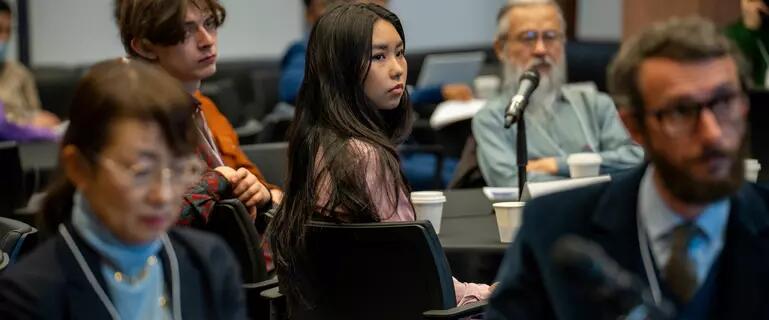
Event Report: Prospects and Possibilities for Japan’s G7 Summit 2023: How Can Universities Contribute?
On February 15, 2023, the Centre for the Study of Global Japan at the University of Toronto co-hosted a public symposium, “Prospects and Possibilities for Japan’s G7 Summit 2023: How Can Universities Contribute?” The event brought together leading thinkers to consider how universities could contribute to the Hiroshima G7 meeting, which took place later in May 2023. The event was organized jointly with the Office of the Vice-President, International, G7 Research Group, the Asian Institute, and the U7+ Alliance, a global coalition of university presidents committed to taking concrete, collective action to address global challenges.
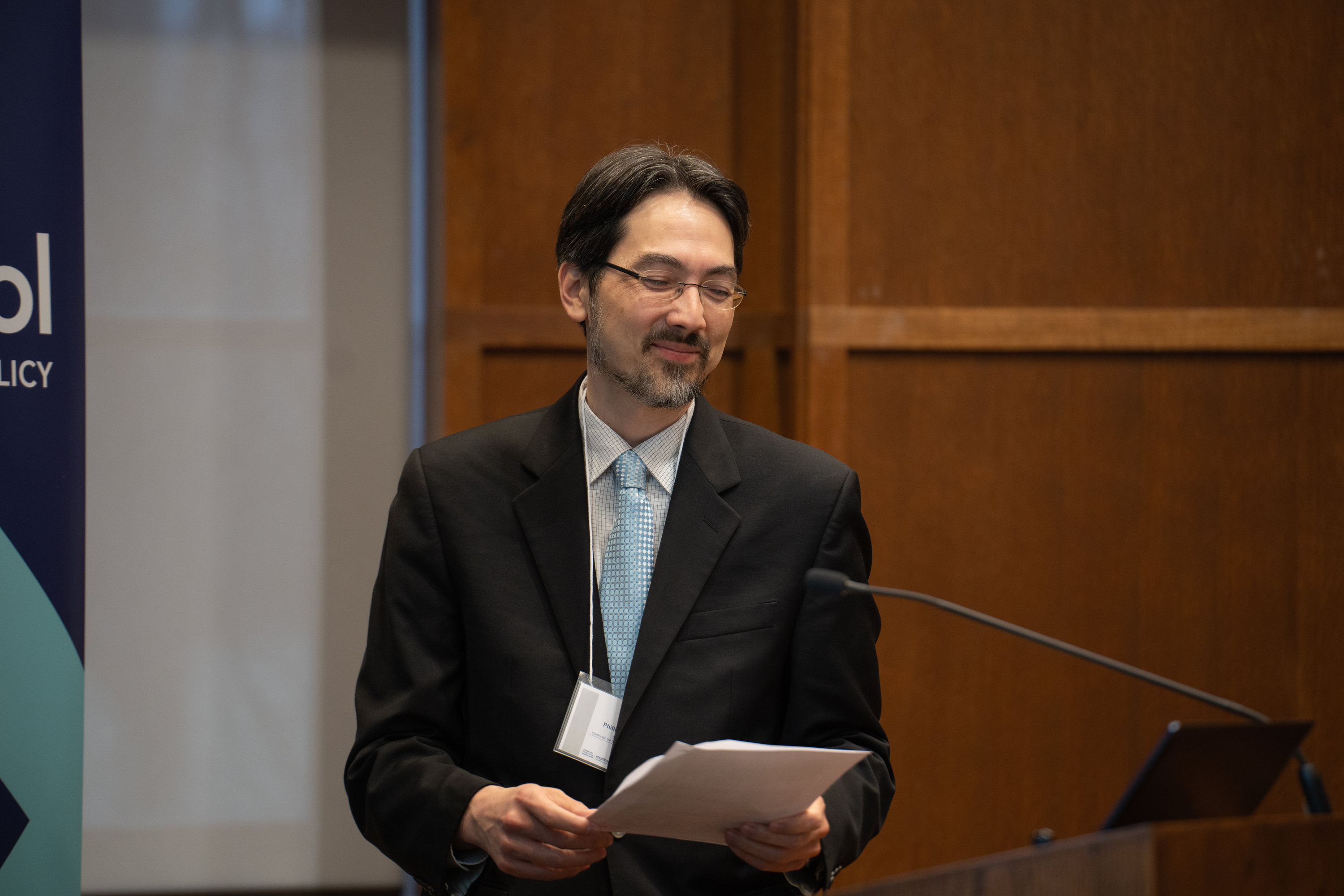
Phillip Lipscy (Director of the Centre for the Study of Global Japan), opened the event by welcoming attendees and delivering a land acknowledgment. This was followed by further opening remarks by Meric Gertler (President of the University of Toronto), Madeline Koch (Executive Director of the G7 Research Group), and Phillip Lipscy.
A keynote address was delivered by Japanese Ambassador to Canada, H.E. Yamanouchi Kanji, who noted the critical role University of Toronto had played 35 years earlier as host of the 1988 G7 meeting in Canada. He observed how much the world had changed between the previous G7 meeting hosted by Japan in 2016 and 2023, including major developments such as the war in Ukraine, COVID-19, rapid technological advancement in areas like artificial intelligence, and the adoption of net-zero commitments by major countries. He argued that the single most important objective of the Hiroshima G7 Summit would be to express solidarity behind the significance of the free and open international order based upon the rule of law. It would also be critical to reach out to countries of the global south and enlist their support. He noted that the location of the summit in Hiroshima would be important in sending a message about aspirations toward nuclear disarmament and non-proliferation. He also highlighted the deepening cooperation between Canada and Japan to address global challenges, as reflected in the Canadian Indo-Pacific Strategy and Japan’s National Security Strategy as well as various bilateral initiatives to strengthen collaboration. He closed by expressing hope that universities will continue to foster innovative solutions to global problems through research, communication, and education.
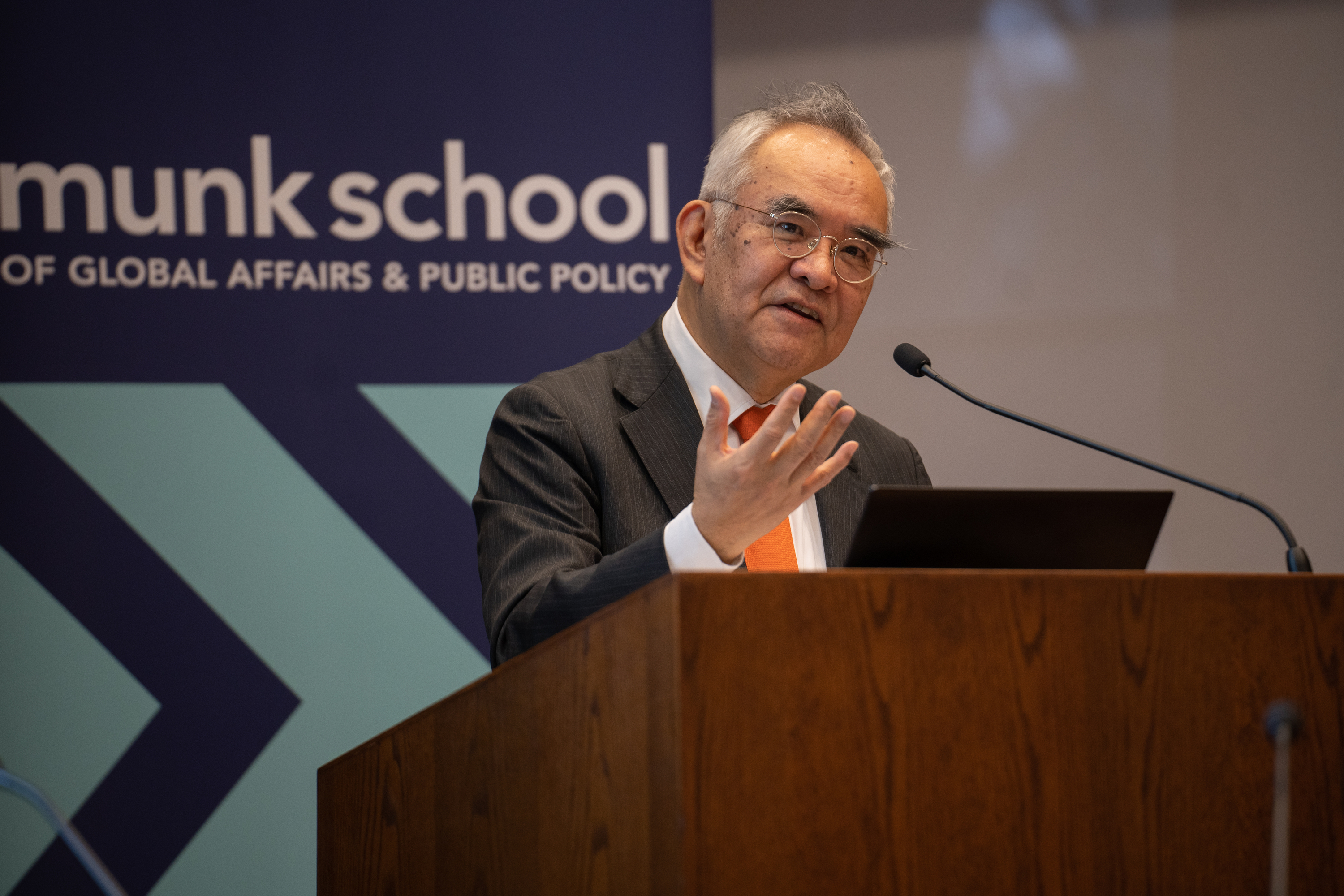
David Morrison, Canadian Deputy Minister of Foreign Affairs and G7 Sherpa, followed up the Ambassador’s remarks by offering a Canadian perspective. He noted that although the economic weight of G7 countries has declined, they still retain important agenda setting power on global issues. An important example was Canada’s proposal to create a Gender Equality Advisory Council as hosts of the 2018 G7 meeting, which has now become a permanent feature. He also pointed out that the G7 can play a big coordination role during times of crises, which has been critical in responding to the war in Ukraine. He expressed hope that universities will contribute to the G7 by identifying long-term issues and gaps in the agenda, communicating early with host countries to shape the priorities of future meetings, and helping to compensate for the lack of a G7 secretariat by communicating G7 priorities and values, particularly to countries in the global south.
The second session of the symposium focused on key issues in G7 global governance. Louis Pauly (J. Stefan Dupré Distinguished Professor of Political Economy at the University of Toronto and former Interim Director of the Centre for the Study of Global Japan), chaired the session. The panelists were Satoshi Ezoe (Director, Global Health Strategy Division, Ministry of Foreign Affairs, Government of Japan), Miranda Schreurs (Chair, Climate and Environmental Policy, Bavarian School of Public Policy, Technical University of Munich), and David Welch (University Research Chair, University of Waterloo and Balsillie School of International Affairs). The panelists discussed issues such as the global health architecture in the aftermath of COVID-19, climate change policy in light of the energy security challenges created by the war in Ukraine, and the future of the world order along with potential flashpoints, such as Taiwan and the South China Sea.
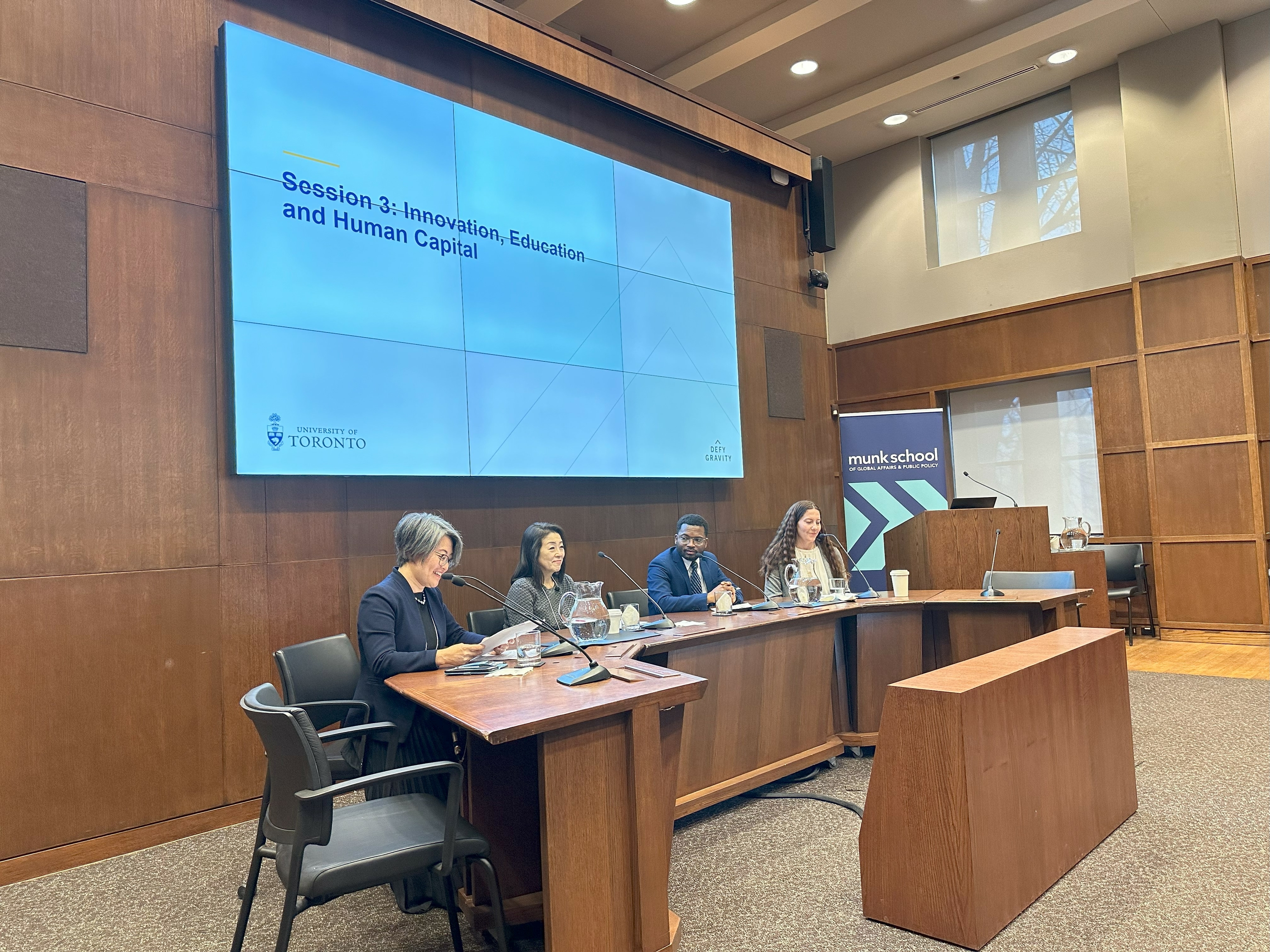
The third session focused on innovation, education, and human capital as important priorities for the G7 as well as a major area in which universities can make an important contribution. The session was chaired by Rie Kijima (Assistant Professor at University of Toronto and Director, Initiative for Education Policy and Innovation at the Centre for the Study of Global Japan). The panelists were Keiko Honda (former CEO of the Multilateral Investment Guarantee Agency and Adjunct Professor, Columbia School of International and Public Affairs), Moussa Blimpo (Assistant Professor, Munk School of Global Affairs & Public Policy), and Elizabeth Buckner (Assistant Professor, Ontario Institute of Studies in Education, University of Toronto). The panelists covered topics such how education can support diversity and inclusion in the workplace, scaling up the role of G7 universities to overcome education challenges in the global south, and how to reestablish the legitimacy of G7 countries to speak out on global issues.
The second keynote of the symposium was delivered by Ron Daniels, the President of Johns Hopkins University. Drawing on his book, What Universities Owe Democracy, Daniels emphasized the role universities play in sustaining democratic norms during a period of global democratic backsliding. He observed that autocrats sometimes more readily recognize the importance of universities, citing the expulsion of Central European University by Viktor Orbán in Hungary. He observed that both liberal democracies and universities place a premium on freedom of speech and thought, tolerance for dissent, and the free flow of information and ideas. He argued that universities should refocus their attention on educating students in the values, virtues, and philosophical foundations of liberal democracy and presented some of the initiatives he has implemented at Johns Hopkins in support of these objectives.
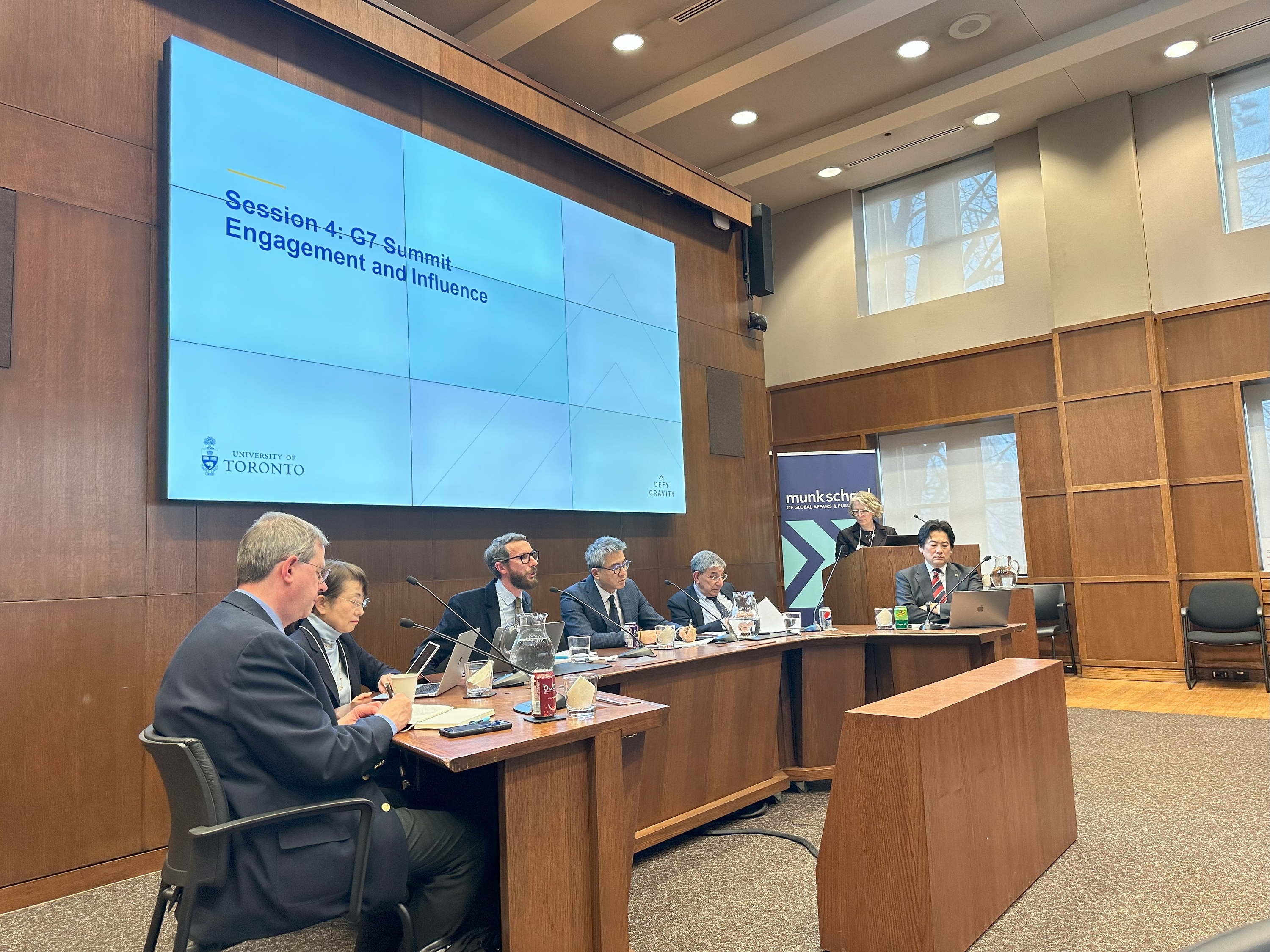
The fourth session of the symposium focused on how external actors can engage and influence the G7 agenda, with an eye to elevating the role of the U7+ Alliance as a mechanism through which universities can shape the course of future policymaking. The session was chaired by Gwen Burrows (Assistant Vice-President, International Engagement & Impact, University of Toronto) and included the following panelists: Christopher Sands (Director, Wilson Center Canada Institute), Atsuko Miwa (Co-Chair, W7 Japan 2023), Jean-Christophe Martin (Director, Institute of Peace and Development, Université Côte d’Azur; UNESCO Chair: Peace and Development through Law), Jonathan Fried (Senior Advisor with Bennett Jones, LLP and the Albright Stonebridge Group), Joseph Wong (Roz and Ralph Halbert Professor of Innovation, Munk School of Global Affairs & Public Policy; Vice-President, International, University of Toronto), and Motohiro Tsuchiya (Vice-President for Global Engagement, Keio University). The session featured a lively debate on topics such as: How can universities contribute to addressing global challenges through multilateral governance? How can the U7+ become a more influential player in the G7 process? Given the specific priorities and possibilities for 2023, how can universities contribute? Joe Wong concluded the symposium with a summary of his observations and an agenda for the future.
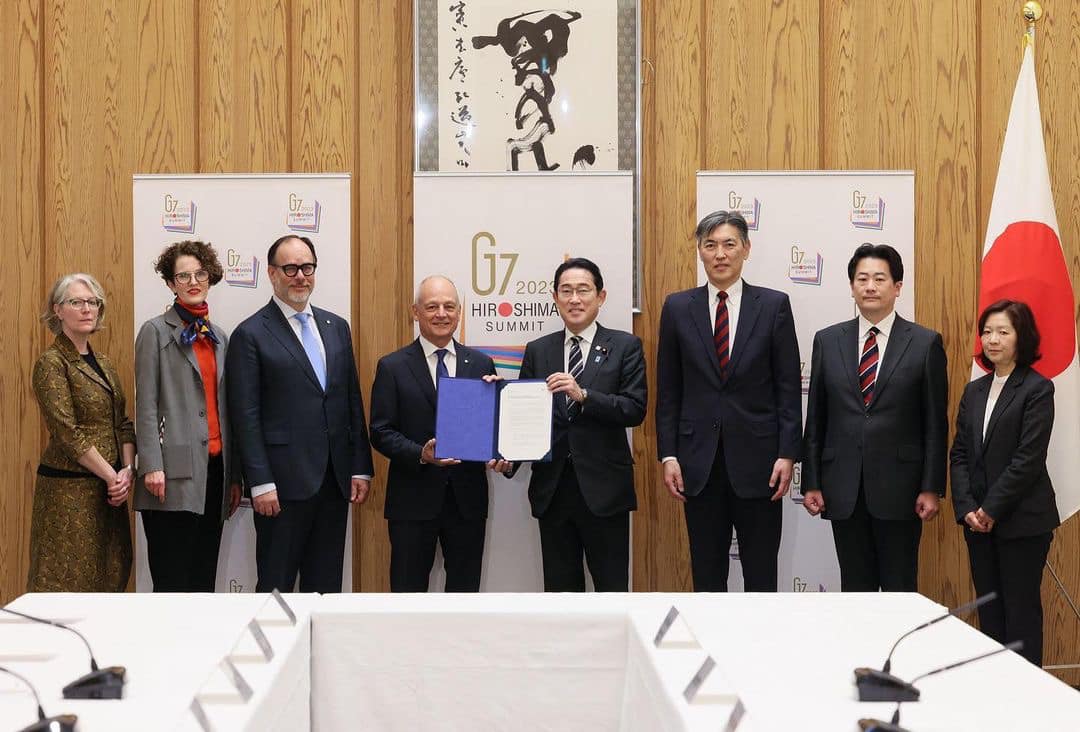
Following the symposium, University of Toronto President Meric Gertler traveled to Tokyo and presented the U7+ Tokyo Statement on Peace and Security to Prime Minister Kishida Fumio, encouraging political leaders to leverage the power of education and research in the global mission to advance peace and security. The Centre for the Study of Global Japan thanks the participants, co-hosts, and audience members that made this event a great success.

